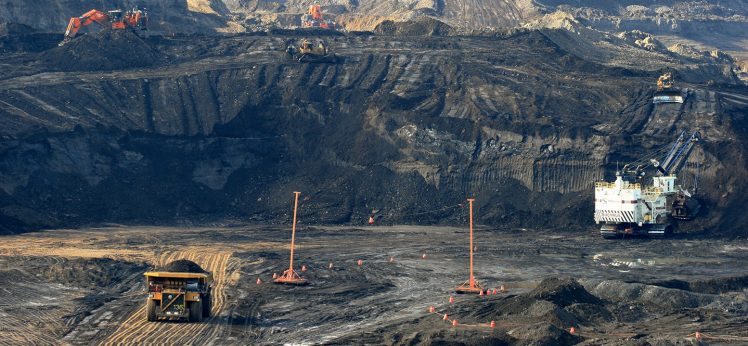
Restructuring in Alberta’s oil industry: Internationals pull out, domestic majors double down
by Eric Pineault & Ian Hussey | April 18, 2017
Last month, Shell and ConocoPhillips became the latest global oil giants to pull back from the Alberta oil sands. On March 9, Royal Dutch Shell (Shell Canada’s parent company) sold most of its Alberta assets to Canadian Natural Resources Limited (CNRL), Canada’s largest hydrocarbon corporation by volume of production. On March 29, US-based ConocoPhillips sold …
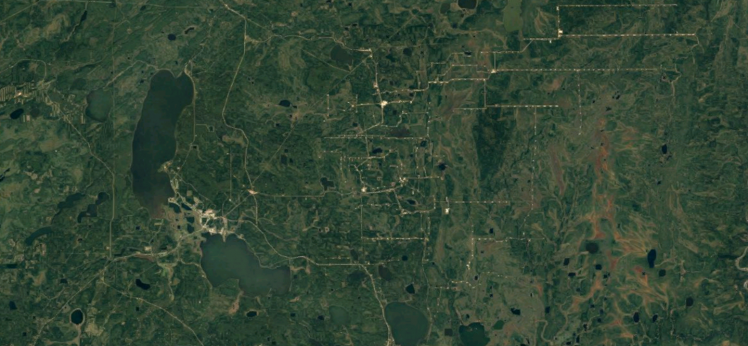
Letter of concern on the land rights and water rights of Bigstone Cree Nation
by Angele Alook | March 22, 2017
Disclaimer: This is my personal letter as a member of Bigstone Cree Nation on current events regarding the environmental, social, and economic impacts of resource extraction. I have shared a copy of this letter with my Chief and Council as a concerned member. There is something happening underneath our feet. It will stop the rivers …

The Corporate Mapping Project in the Monitor
by Corporate Mapping Project | March 14, 2017
A number of Corporate Mapping Project articles and new research is featured in a special issue of The Monitor, the Canadian Centre for Policy Alternatives’ bimonthly national magazine. Check out articles by project co-directors Shannon Daub and Bill Carroll, and new pieces by Marc Lee, Emily Eaton and Simon Enoch, Fiona MacPhail and Paul Bowles, and Mike Lang …
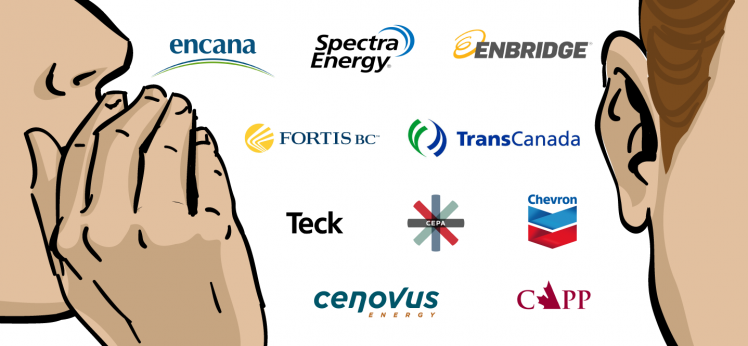
5.2 million reasons the fossil fuel industry has the BC government’s ear
by Nicolas Graham, Shannon Daub & Bill Carroll | March 8, 2017
The problem of corporate influence in politics and government is heating up in BC as we head towards the May election. 2017 kicked off with an explosive story in the New York Times, aptly titled “British Columbia: The Wild West of Canadian Political Cash.” The story drew widespread attention to the complete absence of limits …
$5.2 million in political donations and more than 22,000 lobbying contacts
by Corporate Mapping Project | March 8, 2017
Study reveals scale of influence by fossil fuel industry on BC government, public officials (Vancouver) A new study finds the policy alignment between BC’s provincial government and the fossil fuel industry may be explained, at least in part, by extensive donations to political parties combined with intense, sustained lobbying pressure on public officials. The study …
Infographics: The fossil fuel industry’s access to the BC government
by Corporate Mapping Project | March 8, 2017
Mapping Political Influence examines the political reach of the fossil fuel industry in British Columbia, as evidenced by donations to political parties and lobbying efforts by oil, gas and coal corporations and industry groups. It finds a remarkable and disturbingly close relationship between industry and the provincial government – one that not only contradicts the province’s stated …

Mapping Political Influence: Political donations and lobbying by the fossil fuel industry in BC
by Corporate Mapping Project | March 8, 2017
This study examines the political reach of the fossil fuel industry in British Columbia, as evidenced by donations to political parties and lobbying efforts by oil, gas and coal corporations and industry groups. It finds a remarkable and disturbingly close relationship between industry and the provincial government – one that not only contradicts the province’s stated aim …
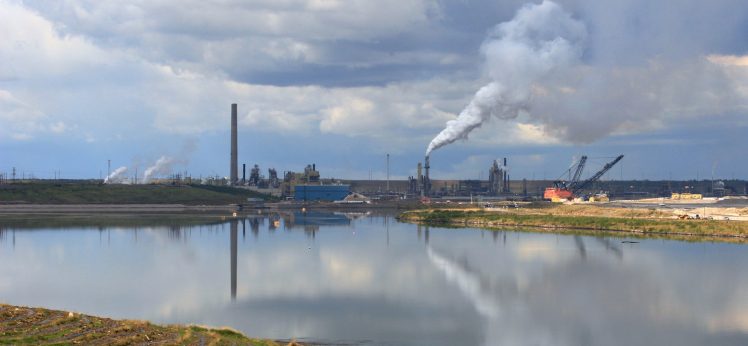
Five things to know about Alberta’s oil sands emissions cap
by Ian Hussey | February 23, 2017
In November 2015, the government of Alberta announced its Climate Leadership Plan, and in June 2016, the enabling legislation for the plan, Bill 20, the Climate Leadership Implementation Act, received royal assent. Bill 25, the Oil Sands Emissions Limit Act — commonly referred to as the emissions cap — is an additional plank in the government’s overall …
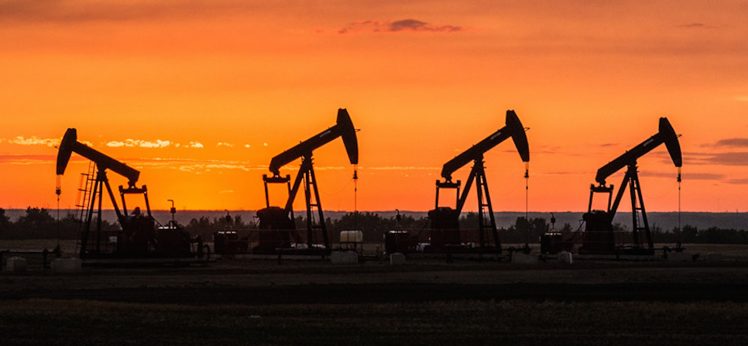
Has Alberta’s new royalty framework achieved its aims?
by Ricardo Acuña | January 30, 2017
It has now been a full year since the Alberta government announced its new royalty framework for oil and gas. The announcement, delivered with significant fanfare on January 29, 2016, and accompanied by numerous statements of support from the oil and gas industry, essentially boiled down to the statement that Alberta was already receiving its …
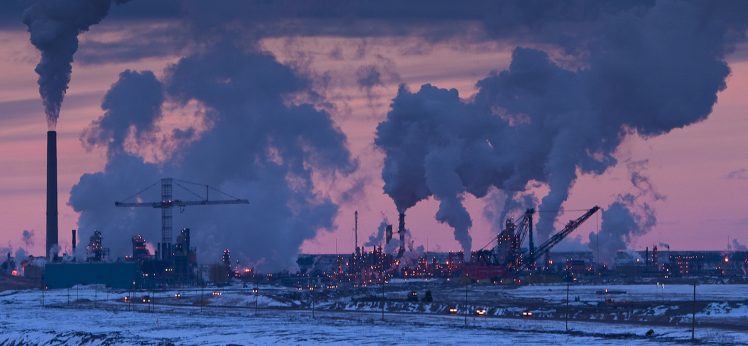
Extracted Carbon: Re-examining Canada’s contribution to climate change through fossil fuel exports
by Marc Lee | January 25, 2017
This study re-examines Canada’s contribution to global climate change in light of the Paris Agreement by looking at extracted carbon—the total amount of fossil fuels removed from Canadian soil that ends up in the atmosphere—whether used for domestic purposes or exported and combusted elsewhere. According to the study, Canada’s extracted carbon has risen dramatically, almost …
Infographic: Is Canada exporting its climate problem?
by Corporate Mapping Project | January 25, 2017
Our latest study shows a dramatic rise in Canada’s greenhouse gas emissions from fossil fuel extraction. In 2015 (the most recent year there was data available) Canada’s extraction activities yielded almost 1.2 billion tonnes of carbon dioxide. If all producer countries act like Canada and continue down this path, we’ll blow right by the targets …
Canada responsible for ballooning greenhouse gas emissions from fossil fuel exports: new study
by Corporate Mapping Project | January 25, 2017
OTTAWA—The amount of fossil fuel removed from Canadian soil that ends up in the atmosphere as harmful carbon dioxide has risen dramatically, almost exclusively because of our country’s growing fossil fuel exports, finds a new Corporate Mapping Project study published by the Canadian Centre for Policy Alternatives and the Parkland Institute. Extracted carbon from Canada …







